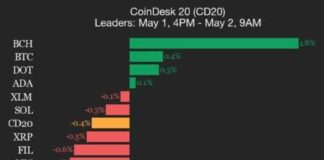Websites to Assist Voter Delegation
In the realm of decentralized governance for 2025, the landscape is rapidly changing with the rise of Decentralized Autonomous Organizations (DAOs) and the involvement of major financial entities like Blackrock, State Street, and Vanguard. These entities are pushing for increased online shareholder voting participation, signaling a shift towards more active engagement in decision-making processes.
One of the key trends in decentralized governance revolves around enhancing voter delegation processes. According to a16z crypto, the introduction of user-friendly delegation websites could potentially increase voter participation by over 20%. However, the challenge lies in presenting delegate choices without inadvertently consolidating power in the hands of a few.
AI’s Role in Delegation
Artificial Intelligence (AI) is expected to play a pivotal role in the delegation process. AI agents have the potential to assist users in identifying delegates who align with their values by analyzing voting records and platforms. This fusion of AI and governance is forecasted to be a major area of exploration in the upcoming year, paving the way for more informed and personalized decision-making processes.
Innovative Incentives for Participation
Traditional incentives like airdropped rewards have fallen short in incentivizing meaningful engagement in decentralized projects. As we move into 2025, there will be a shift towards experimenting with novel incentive models. These may include direct subsidies for economically valuable activities and longer-term rewards with time locks to foster sustained involvement and commitment from participants.
Venture-like Funding for Public Goods
While decentralized projects heavily rely on community contributions to build ecosystems, the current funding mechanisms often fail to support high-risk, high-reward initiatives. The upcoming year may witness the adoption of venture-like funding models tailored for public goods. These models could provide upfront capital for projects with promising long-term prospects, ensuring sustainable growth and development within the decentralized governance space.
In conclusion, the trends shaping decentralized governance in 2025 point towards a future where innovative approaches to collective decision-making in the digital age are not only possible but necessary for the continued evolution of governance structures. As we navigate this rapidly changing landscape, the fusion of technology, finance, and community-driven initiatives will play a pivotal role in shaping the decentralized governance landscape for years to come.

















